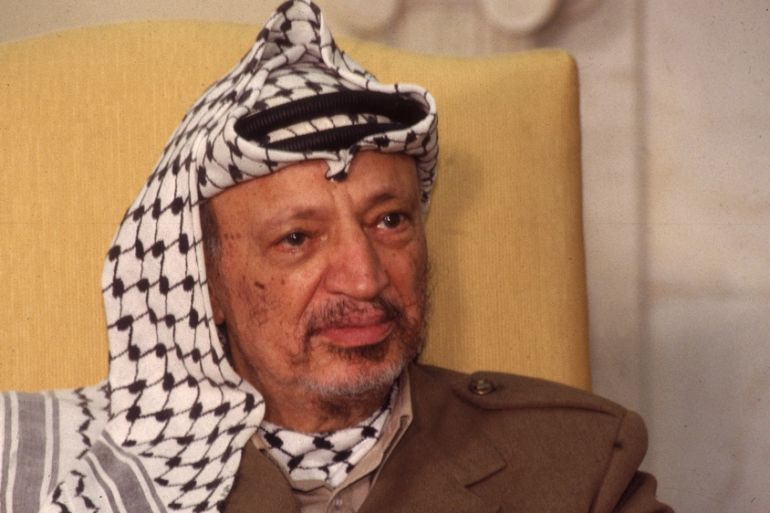UK Archives: GW Bush Ordered CIA to Find Replacement for Arafat
Recently-released British documents reveal that former US Pres. George W. Bush ordered the CIA to search for a replacement for Palestinian leader Yasser Arafat a few months after he entered the White House. This was concurrent with the second Intifada ramping up in 2001....

0:00
/0:00
Facts
- Recently-released British documents reveal that former US Pres. George W. Bush ordered the CIA to search for a replacement for Palestinian leader Yasser Arafat a few months after he entered the White House. This was concurrent with the second Intifada ramping up in 2001.1
- This comes as the UK National Archives disclosed last month the 'PREM49/2354' files about the UK-US relations covering the period from Feb. 24 to Apr. 26, 2001.2
- Bush reportedly confided via telephone to then Prime Minister Tony Blair on Mar. 31, 2001 that the CIA had unsuccessfully looked to find a replacement for Arafat, who he described as 'weak as hell' while talking about the Middle East Peace Process.2
- Then US Secretary of State Colin Powell reportedly opposed the search for a replacement for Arafat. Arafat died a few years later — on Nov. 11, 2004 — at a Paris hospital after a cerebral hemorrhage allegedly caused by the toxic substance polonium. Palestinians blamed Israel for his death, which it denied.1
- The Bush admin., which took office in January 2001 when the second Intifada was at its peak, had urged Palestinian leaders to halt the uprising before launching security talks with Israel.3
- The second Intifada broke out following Israeli Prime Minister Ariel Sharon's entry into the Al-Aqsa compound in September 2000 amid stalled previous negotiations between Arafat and the then Israeli Prime Minister, Ehud Barak, at the 2000 Camp David Summit.4
Sources: 1Al Jazeera, 2The national archives, 3Al mayadeen english and 4Middle east monitor.
Narratives
- Narrative A, as provided by Al. Arafat was not the leader of the Palestinians, but rather someone with authoritarian tendencies who furthered corruption in the region. The defeat of his Fatah party in the 2006 elections was the people's response to those who could have established a state but preferred to pursue their personal interests. Bush's concerns were well-founded.
- Narrative B, as provided by Arab news. Arafat sacrificed his life for the Palestinian cause, serving as a role model for future generations and achieving undeniable success — such as convincing the world about the legitimacy of his people's resistance against Israeli oppression and proving Zionist racism was morally, ethically, and legally wrong. As Palestinians face hardship today, a visionary leader like Arafat is needed once again.
- Establishment-critical narrative, as provided by Atlantic. The US pretends to be a proponent of democracy and popular rule, yet the gap between its rhetoric and actual foreign policy couldn't be bigger. For years, the US has unapologetically meddled in foreign countries to suit its own agenda; wanting to overthrow the democratically elected Arafat is but one example. Sadly, it doesn't look like this will change anytime soon.






